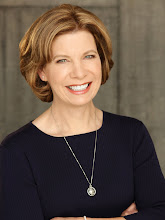I just finished reading a book that I'd like to recommend called, "Everything Changes: The Insider's Guide to Cancer in Your 20s and 30s" by Kairol Rosenthal.
I'm outside the intended age group for this book, so I didn't expect that it would grab me the way it did. But Kairol has a way of drawing you in, almost placing you inside her head so that you feel what she feels, so that you see what she sees. Kairol begins with her own story. At age 27 she is single and working at a nothing job with minimal health insurance when she is diagnosed with stage 2 thyroid cancer that has metastasized to her lymph nodes.She quickly learns how few services are available to her and to the 70,000 young adults who are diagnosed with cancer in the U.S. each year.
As she writes: "With this many cancer patients sniffing anesthesia in operating rooms, absorbing beams of radiation, and sitting in chemo chairs across the country, I was astounded that I and so many others felt so alone. I discovered that other young adult cancer patients wanted to share with me in intimate conversation what they were not willing to reveal in support groups, what they would not tell their doctors or therapist, and what they had a difficult time saying to their friends and family."
So recorder in hand, she travels throughout the U.S. to collect the stories that make up her book. Among them are that of Nora, 24, a lymphoma patient who had no health insurance at the time of her diagnosis. She and her mother, who also has cancer, take care of each other during treatment. There is Amilca, 26, with leukemia who says that doctors underestimate her intelligence: "[They say] 'We'll cross that bridge when we come to it,' and I'm like, 'No, [expletive] you. This is my body, I'll cross it right now.'" And Seth, 33, lives with lymphoma which devastates his parents who have already lost one son to cancer.
Woven throughout these life snapshots, we learn a little about Kairol and how it's possible to find a soul mate even when you've been diagnosed with a catastrophic illness. We hear conversations about fertility, sexuality, spirituality and about medical insurance and navigating the healthcare system. And we find tons of resources with phone numbers and websites.
If I had any disappointment in the book, it would be that it didn't include the struggles in this age group of dealing with cancer-related cognitive deficits. But I also know from writing my own book, that it's hard to include everything and please everyone.
That said, if you're in your 20s or 30s and dealing with cancer, or if you know someone who is, get a copy of the beautifully written "Everything Changes." You'll be glad you did. -- Idelle Davidson







.jpg)

No comments:
Post a Comment